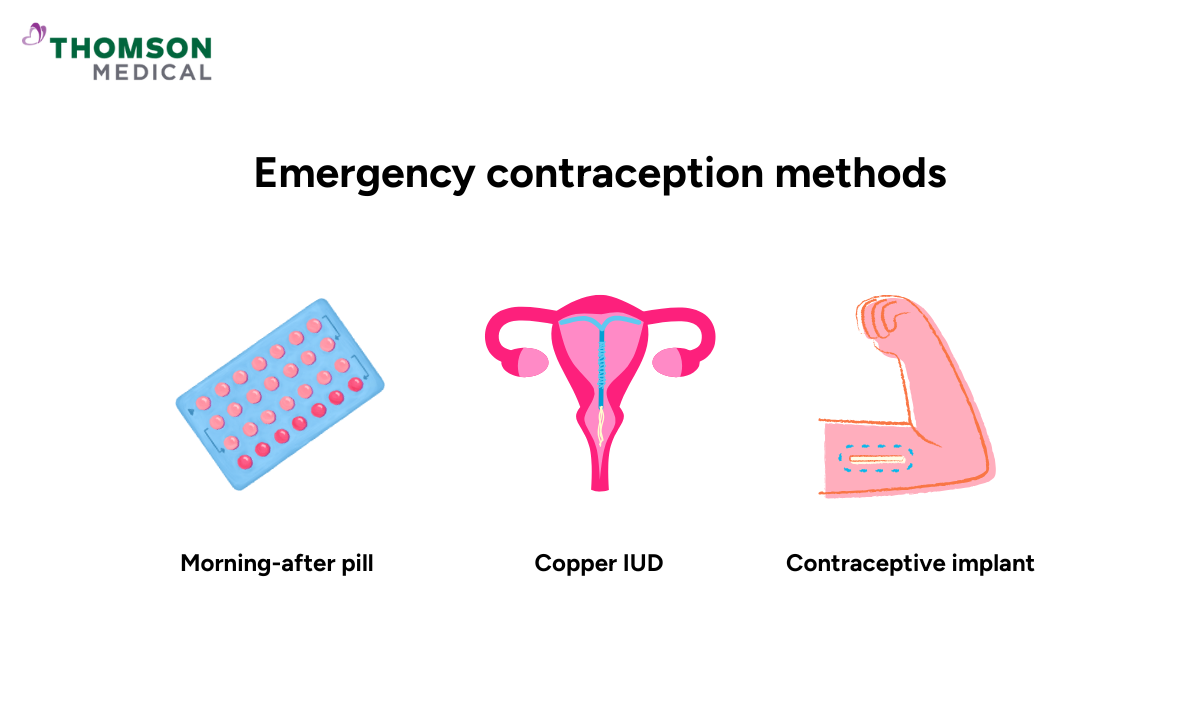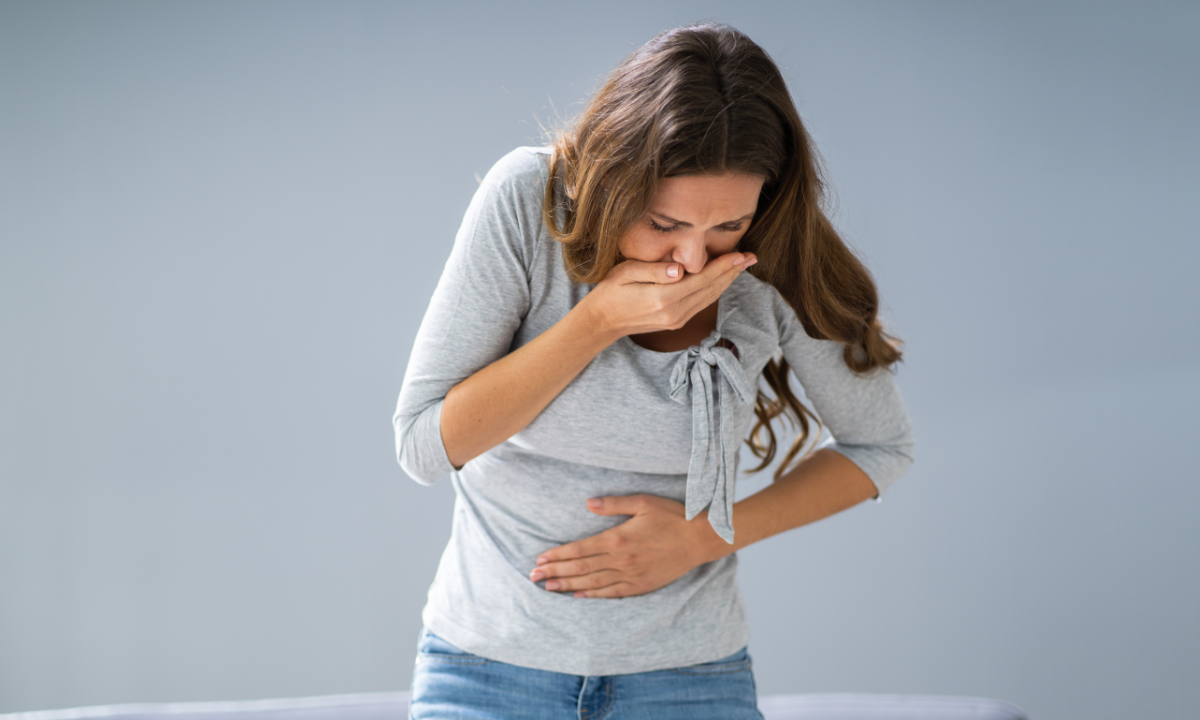Have you had unprotected sex or experienced a contraceptive failure like a broken condom? If you're worried about getting pregnant, you're not alone; many people wonder what to do.
If you’re concerned about the risk of pregnancy after unprotected sex or contraceptive failure, you probably have urgent questions about your next steps. Emergency contraception may offer a solution, but how effective is it, and what options are available? This article will explore the options available to help you take the appropriate steps for your situation.
Can you prevent pregnancy after sex?
Yes, it's possible to prevent pregnancy after sex through emergency contraception (EC). These methods are specifically designed to reduce the chance of pregnancy if you've had unprotected sex or if a contraceptive failure occurred, such as a condom breaking or missing birth control pills.
Emergency contraception options

There are several effective emergency contraception methods available, each with different timelines and effectiveness rates. Here are the main options to consider:
Morning-after pill
The morning-after pill is one of the easiest emergency contraception methods to access. It works best when taken as soon as possible after unprotected sex, but various options have different effective windows:
Plan B (levonorgestrel):
This pill is available without a prescription in most places.
This pill is effective up to 72 hours after unprotected sex and works best within the first 24 hours
Ella (ulipristal acetate):
This pill is available by prescription and can be effective up to 5 days (120 hours) after unprotected sex
Next Choice, Take Action, and other generic versions:
These pills work similarly to Plan B and offer another accessible option for emergency contraception.
Copper IUD
The copper IUD is a highly effective emergency contraception method that offers both immediate and long-term protection. A healthcare provider can insert it within 5 days of unprotected sex to prevent pregnancy, and it can also serve as a long-term form of contraception lasting 3–5 years.
Other prescription options
Beyond the standard morning-after pill, other prescription methods may be available to discuss with your doctor:
High-dose progestin pills:
Some birth control pills can be used off-label for emergency contraception if taken within 72 hours
Emergency contraceptive implant:
In some regions, doctors may provide an implant for emergency contraception, though this is less common for post-coital use
Factors that affect effectiveness
Several factors can influence how well emergency contraception works for you. These are:
Time:
EC is most effective when taken as soon as possible after unprotected sex, ideally within 24 hours. However, it will gradually become less effective over time.
Body weight:
Some studies suggest that Plan B may be less effective in individuals with a BMI above 25 or those weighing over 165 lbs (75 kg).
In these cases, a prescription method like Ella may be preferred.
Timing of ovulation:
EC is more effective before ovulation.
If you've already ovulated, EC may not prevent a pregnancy because the egg is ready for fertilisation.
Proper use:
Following the correct instructions for the specific type of EC you're using is crucial for effectiveness.
If you're unsure which emergency contraception method is right for you, request an appointment with Thomson Medical. Our specialists can help you choose the most effective option and answer any questions you may have.
When should you take a pregnancy test?
Taking a pregnancy test at the right time ensures you get accurate results. Here's when you should consider testing:
After using emergency contraception:
Take a pregnancy test about 3 weeks after taking EC or if you miss your next period to confirm you're not pregnant
If you notice symptoms:
If you're more than 2 weeks late or experience signs of pregnancy such as nausea, breast tenderness, or fatigue, take a test immediately
Our sexual health specialists
Loading...
Possible side effects of emergency contraception

While emergency contraception is safe for most people, you may experience some temporary side effects. Some may experience mild, short-term side effects that usually resolve quickly:
Nausea or vomiting:
This can occur in some individuals, especially after taking Plan B. If vomiting occurs within 2 hours of taking the pill, take another dose.
Spotting or irregular bleeding:
This side effect is common after taking the pill and usually resolves within a few days.
Fatigue or dizziness:
You may feel tired or lightheaded for a short time after taking EC.
Headaches:
Hormonal changes from the pill can cause headaches.
Changes in your menstrual cycle:
Your period may be earlier or later than usual, and it may be lighter or heavier.
What to do if emergency contraception fails?
In some cases, emergency contraception may not prevent pregnancy. If this happens, here are the steps you should take:
Take a pregnancy test:
Check for pregnancy about three weeks after taking EC or if your next period is late. Testing too early may not give an accurate result.
Consult a healthcare provider:
If your test is positive, discuss your options with your doctor, which may include continuing the pregnancy or considering abortion if legally available in your area.
Seek counselling:
If the emotional or psychological aspects are causing stress, speak with your healthcare provider or counsellor for support.
How to prevent pregnancy in the future?
For ongoing protection, consider adopting the following long-term contraception method that fits your lifestyle and health needs:
Take birth control pills, which prevent ovulation when used daily.
Use condoms, male or female condoms, to protect against both pregnancy and sexually transmitted infections (STIs).
Choose an IUD (Intrauterine Device), a highly effective long-term option that provides protection for 3–5 years.
Get implants, small rods placed under the skin that release hormones to prevent pregnancy
Have a contraceptive injection, a hormonal shot given every three months
Apply a contraceptive patch, which releases hormones into your body
Insert vaginal ring, a small, flexible ring placed in the vagina that releases hormones to prevent pregnancy.
If you're looking for a reliable long-term contraception method or want to discuss which option best suits your lifestyle, schedule an appointment with Thomson Medical. Our specialists can help you find the right contraceptive solution for your needs.
FAQ
What not to rely on after sex?
Many people believe that several methods can prevent pregnancy, but in reality, they are ineffective and may even be harmful. Avoid relying on the following:
Withdrawal Method:
Pulling out before ejaculation is unreliable because pre-ejaculate fluid can contain sperm.
Douching:
Douching after sex does not prevent pregnancy and can potentially cause vaginal irritation or infection.
Natural Family Planning:
Ovulation tracking after sex is not an effective way to prevent pregnancy.
Does emergency contraception protect me for the rest of the month?
No, emergency contraception only works for the specific incident of unprotected sex you are trying to prevent pregnancy from. It does not protect against future unprotected sex during the same cycle, so you'll need additional protection if you have sex again.
Can I use emergency contraception more than once?
Yes, you can use emergency contraception more than once if needed. However, it is not intended as a regular form of contraception, and relying on it regularly is less effective than using consistent, long-term birth control.
Can emergency contraception cause infertility?
No, emergency contraception does not affect your long-term fertility. It is a temporary method designed to prevent pregnancy after a single instance of unprotected sex and will not impact your ability to conceive in the future.
How can I be certain I am not pregnant after sex?
The only way to be completely sure is to take a pregnancy test about 3 weeks after unprotected sex or if you miss your period. If you're worried before then, consult a doctor for peace of mind.
How can I clean up after sex to avoid pregnancy?
Cleaning up after sex, such as wiping or showering, does not prevent pregnancy. Sperm deposited in the vagina causes pregnancy, and washing or using the bathroom won't change that. The only way to prevent pregnancy after sex is through emergency contraception or long-term birth control.
The information provided is intended for general guidance only and should not be considered medical advice. For personalised recommendations and tailored advice based on your unique situations, please consult a specialist at Thomson Medical. Request an appointment with Thomson Medical today.
For more information, contact us:
Thomson Specialists (Women's Health)
Thomson Women's Clinic (TWC)
- Novena:
6592 6686 (Call), 8611 8986 (WA) - Bukit Batok:
6569 0668 (Call), 8686 3525 (WA) - Choa Chu Kang:
6893 1227 (Call), 8282 1796 (WA) Jurong:
6262 8588 (Call), 6262 8588 (WA)- Katong (female doctor):
6970 2272 (Call), 8611 9020 (WA) - Punggol:
6243 6843 (Call), 8811 0328 (WA) - Sembawang: 6753 5228
- Sengkang: 6388 8125
- Serangoon (female doctor): 6382 3313
- Tampines: 6857 6266
- Tiong Bahru: 6276 1525
